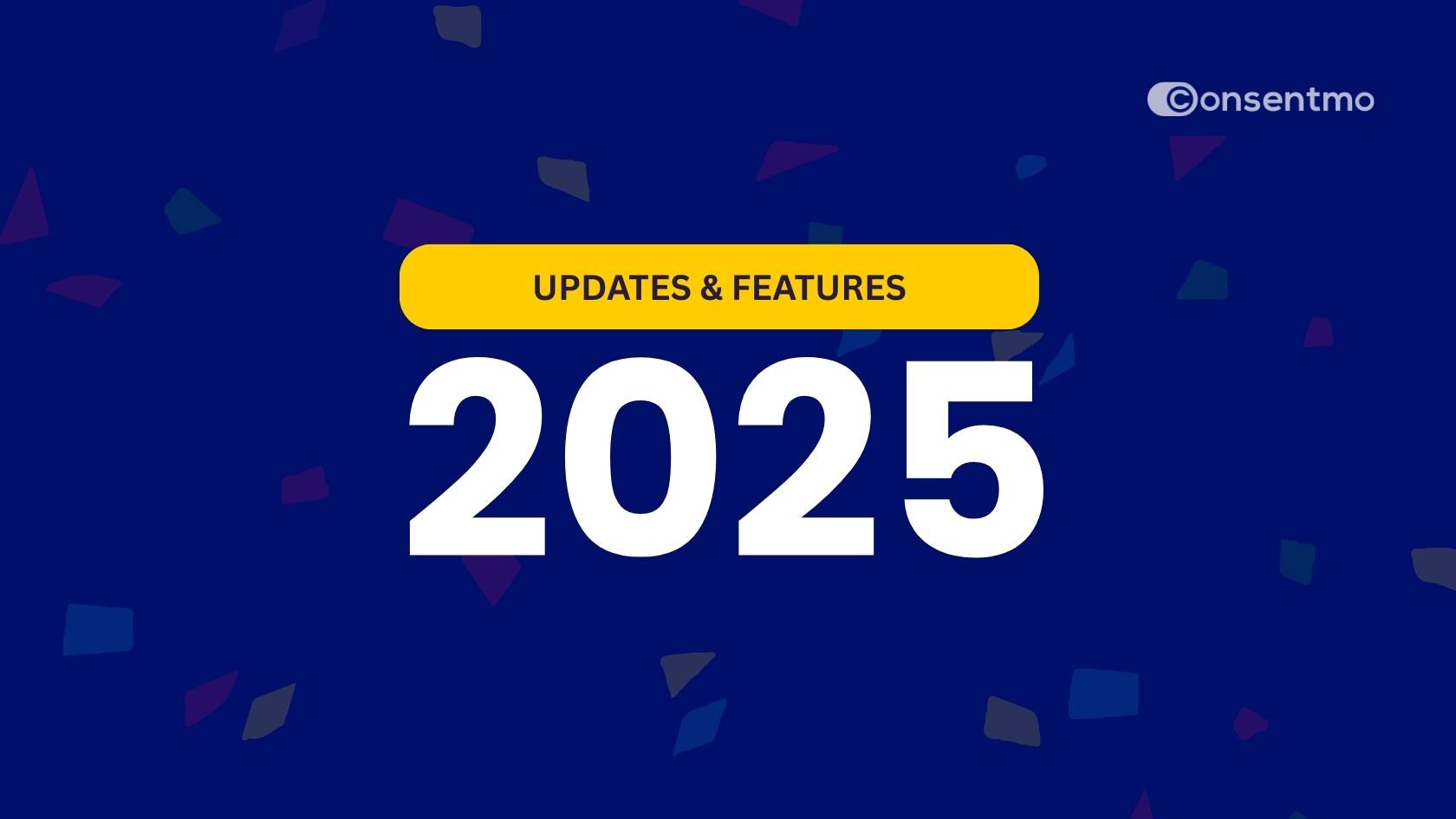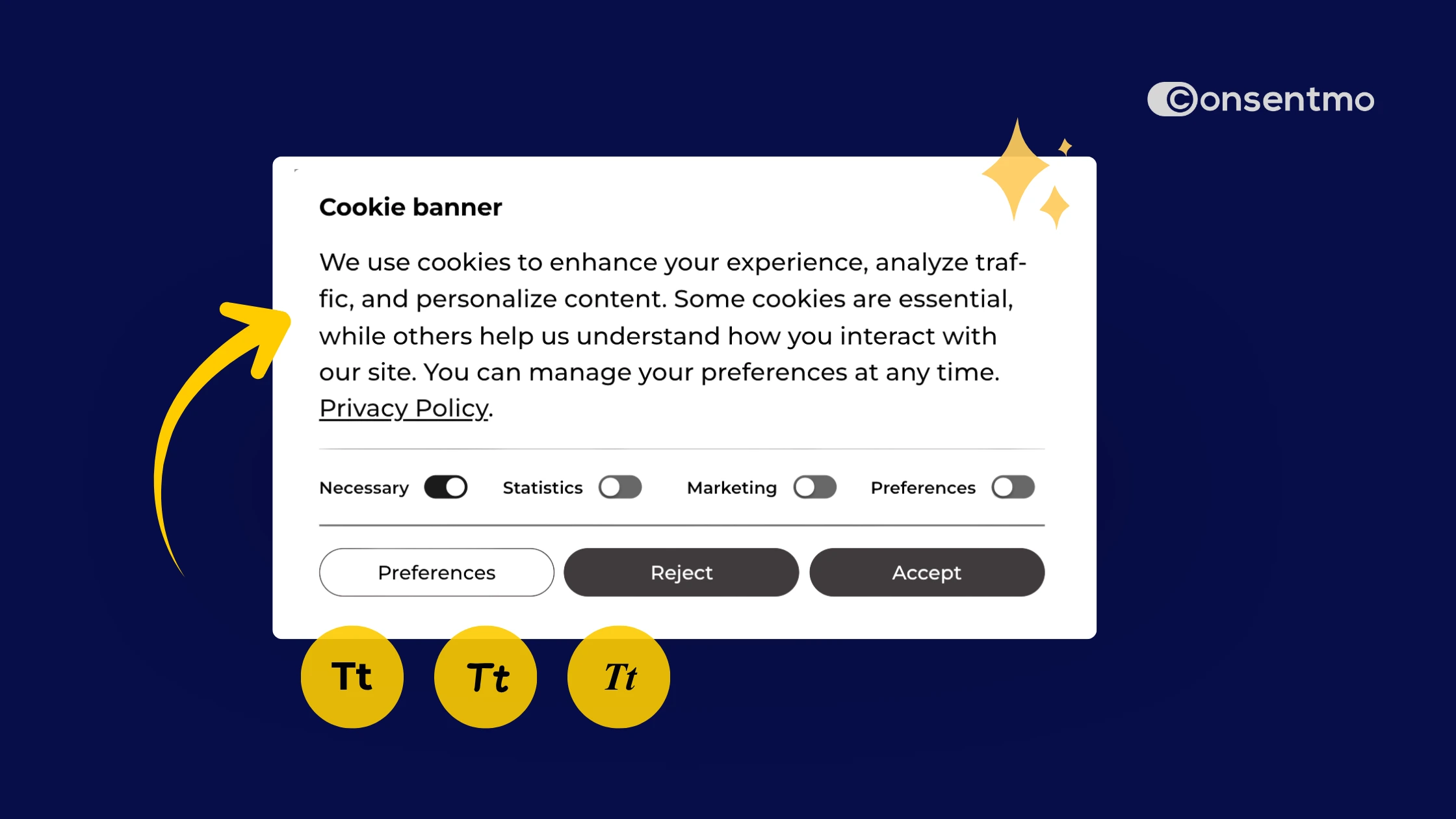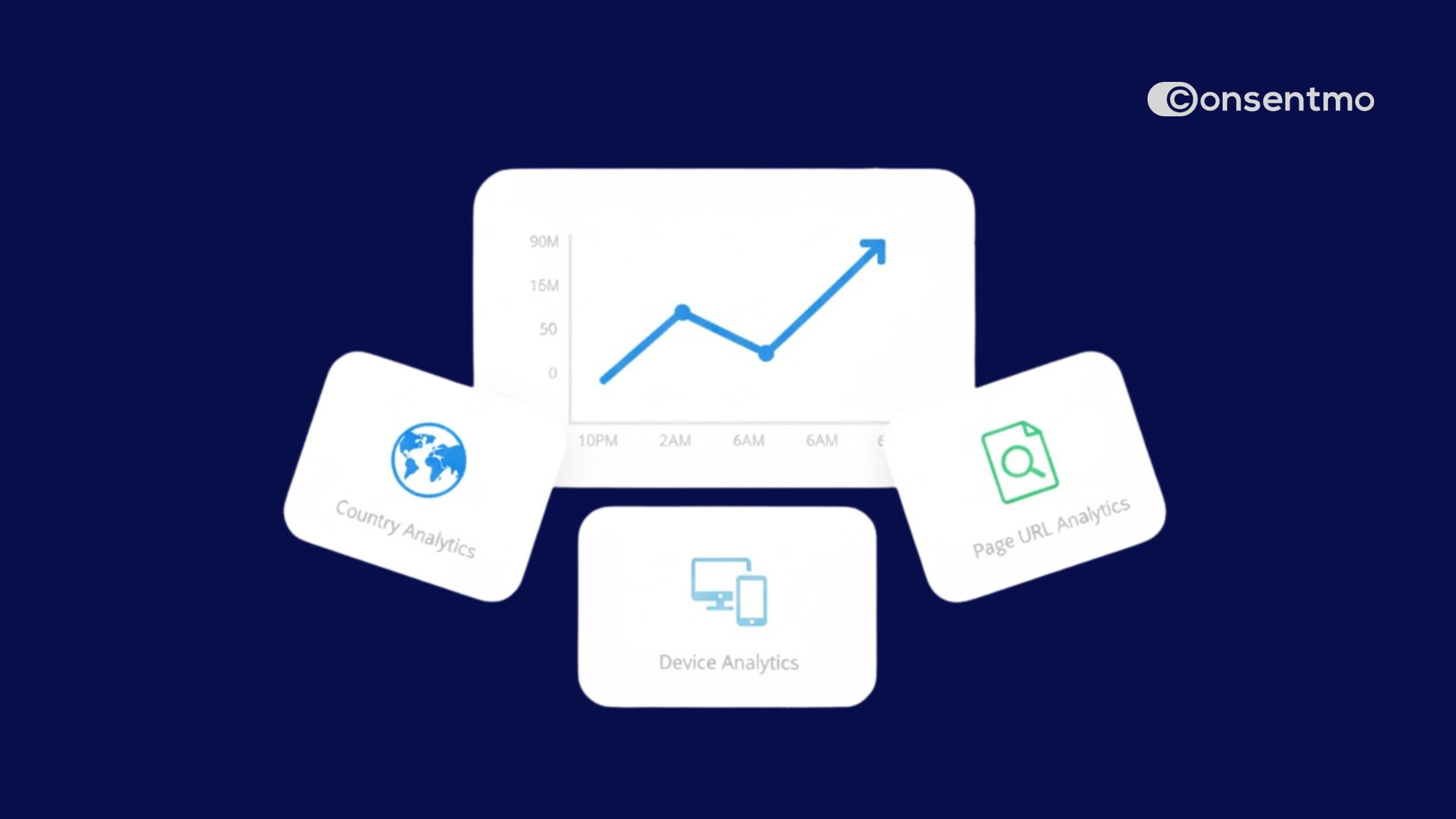Understanding Website Cookies Better!
As the world of e-commerce continues to grow, so do the complexities of compliance and data privacy. Shopify merchants are not just business owners; they are also responsible for handling their customers' data in a compliant way, which is no easy task. One of the first steps in managing data responsibly is understanding what types of data are being collected on your store, and the main gatekeepers of this information are cookies.
To help merchants take control of this process, Consentmo is excited to introduce our new Automatic Cookie Scanning feature. This feature is designed to give merchants a snapshot of all the cookies present on their store the very first time they access the app. Whether you’re on a free or paid plan, the scanner is an effective way to identify the tracking elements in your store, understand what they are, and take the first step toward compliance.
In this blog, we’ll break down why cookies matter, what you can gain from knowing about them, and how this new feature can support you in managing your compliance requirements more effectively.
What are Cookies and Why is Scanning Them Important for Merchants?
If you’re new to the concept of cookies, here’s a quick explanation. Cookies are small text files stored on a user’s device when they visit a website. These files are created to hold a modest amount of data specific to the visitor and website, and they serve various purposes - from remembering login information to tracking user behavior and preferences.
For e-commerce stores, cookies are everywhere. They help keep track of items in a user’s cart, remember login details, show personalized product recommendations, and power analytics tools to understand customer behavior. But here’s the catch: with so many cookies operating in the background, some might be collecting more information than what’s necessary. This could lead to non-compliance with data privacy regulations like the General Data Protection Regulation (GDPR) in Europe, the California Consumer Privacy Act (CCPA), and other international standards.
Why is this important? Because non-compliance can result in hefty fines, restricted operations, or unwanted scrutiny from regulators. Knowing exactly what cookies are on your Shopify store gives you the power to control which ones are active, what data they are collecting, and how long they are storing it. A thorough scan helps merchants start managing their store’s data more effectively, which is the foundation for building a compliant and well-organized e-commerce business.
What Valuable Information Can Merchants Get from Knowing Their Cookies?
Understanding the cookies on your store isn’t just about ticking a compliance box; it can provide deeper insights into your website’s functionality and third-party integrations. Let’s look at some of the information you can gather from a cookie scan:
- Identify Active Cookies and Their Purpose - A comprehensive scan will show you a list of all the cookies currently active on your Shopify store. Each cookie serves a specific purpose - some may be necessary for the website to function, while others are used for marketing, analytics, or targeting. Knowing what these cookies do can help you decide which ones to keep and which to deactivate.
- Discover Third-Party Integrations - If you’ve installed various apps or plugins on your Shopify store, they might be adding cookies that you aren’t aware of. A cookie scan will reveal third-party cookies coming from these tools, such as Google Analytics, Facebook Pixel, or ad networks. This is particularly useful for merchants who want to see how third-party vendors are interacting with their customer data.
- Assess Potential Compliance Issues - If a cookie is gathering data without the appropriate legal basis, it could pose a compliance risk. A scan will help identify such cookies so you can decide on the next steps - whether that’s removing them, blocking them until consent is given, or adjusting your store’s cookie notice to inform users.
- Understand Data Storage and Duration - Cookies aren’t designed to stay forever. Some expire after a session ends, while others linger on a user’s device for months or even years. Knowing the lifespan of each cookie can help you understand how long data is retained and allow you to update your policies accordingly.
- Build a Stronger Data Strategy - Once you have a detailed list of cookies, you can analyze how data is being used across your store. This could help inform decisions around marketing strategies, app integrations, and data retention practices.
What are the Different Types of Cookies?
While the specifics of each cookie depend on what your store is running, cookies typically fall into one of several categories:
- Strictly Required Cookies - These cookies are key for basic site functionality. They help manage sessions, secure login areas, and enable navigation around the store. Without these, the site wouldn’t work correctly.
- Analytics and Statistics Cookies - These cookies gather data on how visitors interact with a website. They can show which pages are most popular, track bounce rates, and analyze visitor flow. This information is usually aggregated and anonymized.
- Marketing and Retargeting Cookies - Marketing cookies track user activity across websites to create a profile of interests. They are often used to deliver personalized ads based on browsing history. These cookies can be quite invasive and need special attention in terms of consent.
- Functional Cookies - These cookies enhance your experience by remembering key personal settings. They keep track of these choices. They include your log in details, preferred language, and the website's theme.
How Consentmo Can Be of Help - The Automatic Scanning Feature
For Shopify merchants looking to get a handle on their store’s cookies, Consentmo’s new Automatic Scanning feature is a game-changer. Here’s how it works:
1. First Scan Upon Installation
When you first access the Consentmo app, the Automatic Scanning feature will run a quick, in-depth scan of your store. This initial scan is designed to identify all the cookies currently active on your site. The scan results are then displayed in your Cookie bar Settings tab, providing a clear overview of what’s running in the background.
2. Accessing Your Cookie Report
Once the scan is complete, merchants can view a list of detected cookies, including their names, categories, and purposes. This gives you a bird’s-eye view of all tracking elements on your site. For those on the Free plan, only a limited portion of the cookie report will be accessible. However, upgrading to a paid plan unlocks the full report, allowing you to see every cookie in detail.
3. Tailor Your Cookie Notice and Policies
With the knowledge gained from the scanner, you can customize your cookie notice and policies to reflect exactly what is being collected. Consentmo also offers features to categorize cookies and set up consent management, so you can display accurate and updated information to your store visitors.
4. Continuous Scanning for Proactive Management
For paid users, the scanner can be set to run periodically with the Scheduled scanner (Automatic) feature, helping you keep tabs on any new cookies that may be introduced by third-party integrations. This makes ongoing compliance management much more manageable by flagging new additions right away.
Conclusion
The landscape of data compliance is constantly evolving, and for Shopify merchants, keeping track of what’s happening on your store is an ongoing responsibility. Consentmo’s Automatic Scanning feature is here to support you in taking that first step toward compliance by providing a comprehensive overview of the cookies present on your site.
Whether you’re just starting on the Free plan or have upgraded to a paid plan for complete visibility, the scanner helps you identify potential issues, organize your data, and implement appropriate measures to manage your store’s compliance effectively from the second you access the app.
Ready to see what cookies are running on your store? Head over to the Consentmo app and get your first scan today!

.jpg)



.webp)

.webp)



















































.webp)

















%20-%20Copy-p-500.webp)

.webp)



%20-%20Copy.png)
.svg)